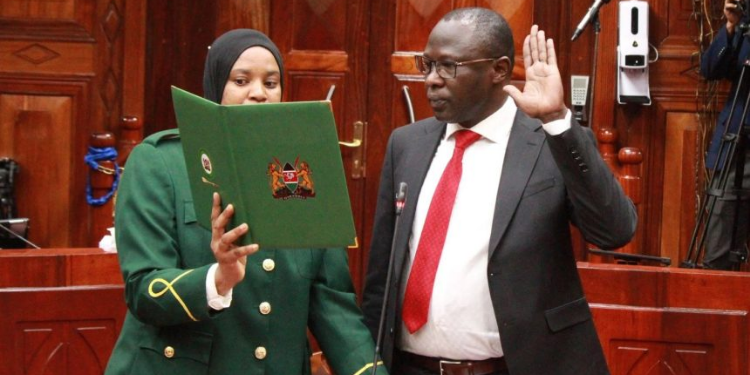The High Court of Kenya has nullified President William Ruto‘s gazette notice on the appointment of seven nominees to the Independent Electoral and Boundaries Commission (IEBC).
The nominees include chairperson-designate Erastus Edung Ethekon, Hassan Noor Hassan, Mary Karen Sorobit, Anne Nderitu, Moses Mukwana, Francis Odhiambo, and Fahima Araphat Abdallah.
Chief Justice Martha Koome had constituted a bench comprising Justices Roslyne Aburili, John Chigiti, and Bahati Mwamuye, who on Thursday, July 10, issued their decision on whether to clear the way for the nominees’ swearing-in or require a fresh recruitment process — a decision coming just two years before the 2027 general elections.
The bench was tasked with determining whether the selection process met constitutional standards and whether President Ruto and the IEBC Selection Panel acted within the law.
The petition was filed on May 15, 2025, by activist Kevin Roy Omondi and human rights defender Boniface Mwangi.
High Court nullifies notice on appointment of IEBC commissioners
In its decision, the court dismissed the substantive petition seeking to invalidate the appointments.
The judges in their ruling cited and explained several reasons as to why the petition was dismissed.
However, the judges held that the Gazette notice issued by President Ruto to formalise the appointments was unlawful, as it had been published in violation of a valid and subsisting conservatory order issued by the court.
The judges consequently quashed the notice. This means that the appointments, while substantively upheld, remain incomplete until they are properly formalised in accordance with the law.
Ruto is now required to issue a fresh Gazette notice to regularise the appointments in compliance with the court’s judgment which will clear the path for the chairperson and commissioners to take the oath of office before the Chief Justice and formally assume their roles at IEBC.
“With the lifting of the conservatory orders, upon dismissal of the petition, the appointing authority is at liberty to take necessary appropriate constitutional steps,” said the Judiciary in a press release on Thursday night.
Earlier in the case, Justice Lawrence Mugambi had allowed Parliament to proceed with the vetting of the nominees but issued orders suspending their gazettement and swearing-in, noting that the nominations could not be completed until the constitutional issues raised by the petitioners were resolved.
Due to the significance of the matter, Justice Mugambi referred the case to CJ Koome, who then constituted the three-judge bench to hear and determine the case.
The case centered on six key constitutional and procedural issues identified by the court.
Inside the petition
One major point of contention was whether the nominations respected the constitutional principles of ethnic and regional diversity, as well as inclusivity for persons with disabilities.
According to the petitioners, appointing both Ethekon and Sorobit from the Rift Valley violates these principles and leaves the Upper and Lower Eastern regions unrepresented.
“The nomination of the Chairperson and Commissioner from Rift Valley is contrary to the Constitution of Kenya, 2010,” the petitioners stated.
“The Constitution did not anticipate that the composition of the IEBC would be dominated by a majority from the same region while excluding other regions.”
Also Read: Court Issues Fresh Directives on Vetting and Swearing-in of IEBC Nominees
The eligibility of Sorobit and Noor had also been questioned.
Petitioners claimed Sorobit previously served as a county chairperson for the Jubilee Party, while Noor contested the Mandera governor seat in 2022, both actions that would violate Article 88(2) of the Constitution.
“Sorobit served as a county chairperson of the Jubilee before the 2022 elections, and her short-listing contravened the express provisions of Article 88(2)(a) of the Constitution,” the petitioners argued.
“Noor was ineligible to apply or be selected as an IEBC commissioner as he vied for the Mandera County governorship in 2022.”
Why petition was dismissed
On its part, the High Court found that the allegations of constitutional disqualification under Article 88(2) were unfounded, and that none of the seven nominees are disqualified under that provision of the supreme law.
The judges further found that none of the other allegations regarding the nominees had been proved, and that the failure to include a person with disabilities in the nominations list was not unconstitutional.
Another issue was whether President Ruto was required to consult opposition parties, in line with the National Dialogue Committee (NADCO) recommendations.
Petitioners told the court, “The President did not engage or consult the minority/majority political parties at the National Assembly prior to making the selection as per the National Dialogue Committee recommendations adopted by the National Assembly.”
The High Court however found that the processes of selection, nomination, and appointment of the IEBC nominees did not violate the constitutional principles of public participation, consultation with political parties, and access to information as enshrined in Articles 10, 35, and 38 of the Constitution.
Also, the court found that the NADCO recommendations are not applicable to the issue of selection, nomination, and appointment of the IEBC Chairperson and the Commissioners.
IEBC chairperson nominee link to Deputy State House Chief of Staff
Concerns about Ethekon’s impartiality had also been raised due to his past work relationship with State House Deputy Chief of Staff Josphat Nanok when he served as County Attorney in Turkana.
Also Read: IEBC Announces Restoration of Voter Verification Portal
The three-judge bench in its ruling however said that it was not persuaded and that the mere working as a county attorney during the reign of Nanok does not disqualify him.
According to the ruling, disqualifying nominees solely based on their past professional engagements would set a bad precedent.
The petitioners further argued that the President and the selection panel failed to disclose interview results and the reasons behind the final appointments.
Finally, the addition of Hassan Noor to the shortlist through an addendum was challenged as irregular, with claims that it undermined the integrity of the process.
The judges however said that there was no evidence of irregularity included in the petition, adding that the addendum addition does not offend the law.
“The High Court found that IEBC Selection Panel did not act illegally by issuing a subsequent expanded shortlist,” the Judiciary said.
Also, judges found that the familial relationship between Noor and National Assembly Majority Leader Junet Mohammed were nonconsequential and had nothing to do with his appointment.
Follow our WhatsApp Channel and X Account for real-time news updates




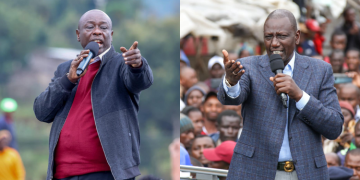

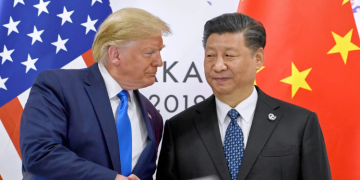










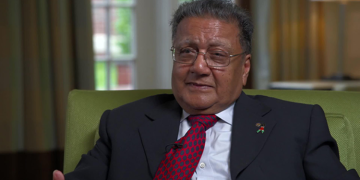











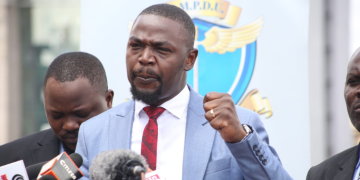

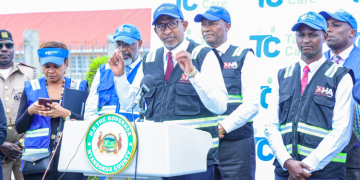








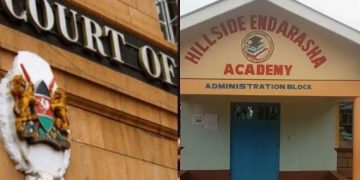



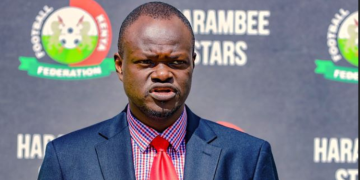


![Odemba Names Provisional Harambee Starlets Squad For 2026 Wafcon Qualifiers [Full Squad] Odemba Names Harambee Starlets Squad For 2026 Wafcon Qualifiers](https://thekenyatimescdn-ese7d3e7ghdnbfa9.z01.azurefd.net/prodimages/uploads/2025/10/odemba-2025-360x180.png)























